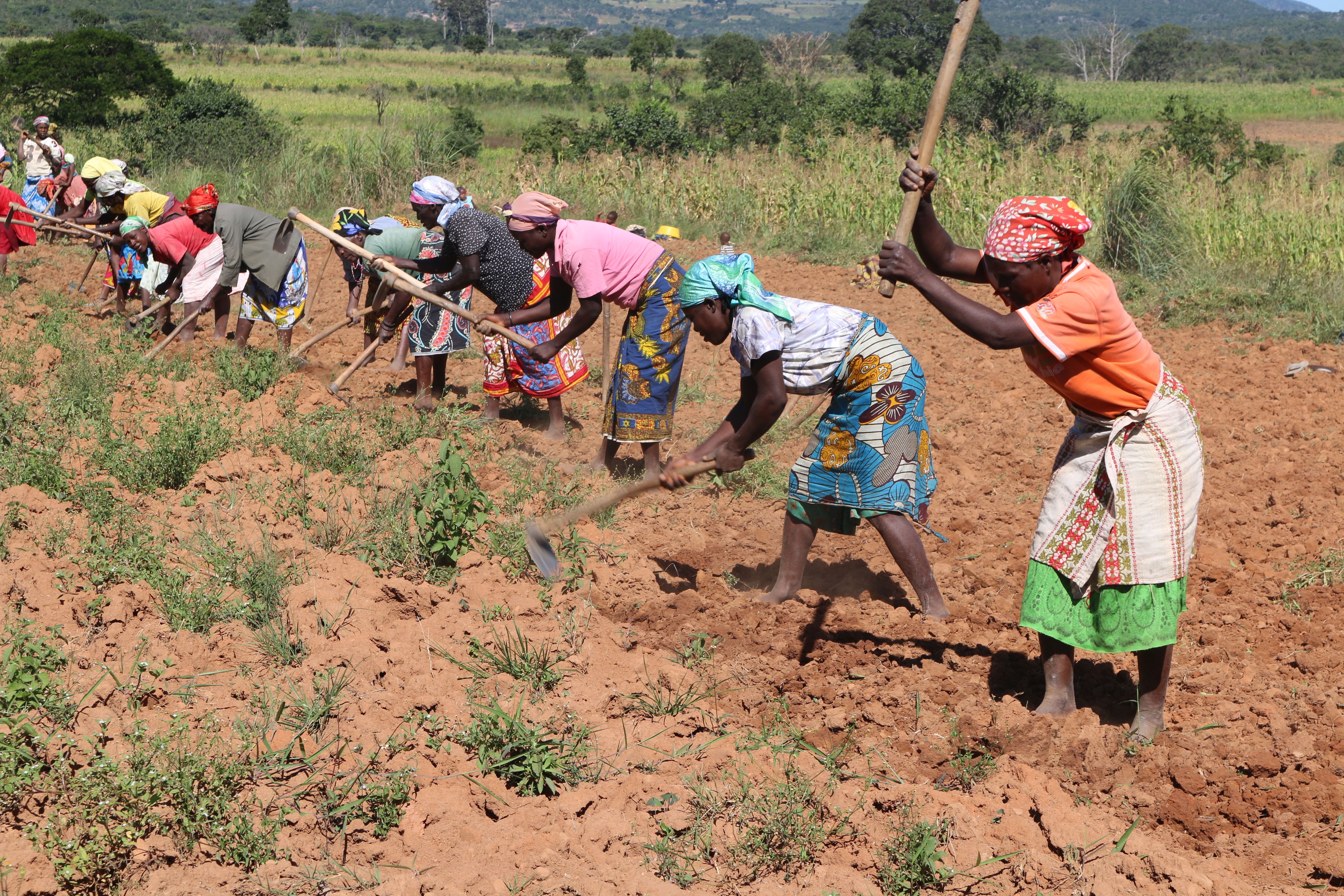Mavo Diami
Mavo Diami (My Land) information services for farmers in Angola
> Download the Mavo Diami project closure flyer
The project was called Mavo Diami, which means ‘my land’ in an Angolan local language. The aim of Mavo Diami was to increase sustainable food production and help provide income security for smallholder farmers in Angola, by improving their agribusiness performance through informed decisions supported by the Mavo Diami services for weather, soils, and crops. The important decisions for an individual farmer relate to what to plant, when to plant, and when to harvest and keep track of farming results.
Another important goal of Mavo Diami was strengthened resilience of smallholder farmers with respect to the effects of climate change. The main crops that are cultivated by the users are maize, beans, potatoes, tomatoes, onions, soybean and cabbage. The project was carried out by World Vision (a development organisation from the Netherlands), with the Angolan partners Ministry of Agriculture and AgroLider (business owner attracted at the start of the project) and Dutch partners Aquaetor Groen + Ruimte (an agricultural and environmental consultancy), eLEAF (a remote sensing company), FutureWater (a water consultancy), Weather Impact (a weather consultancy).
Provided services
The services that Mavo Diami provides are crop management advice, crop selection advice, fertiliser advice, advice on good agricultural practices and weather information. Currently the services include localised weather forecasts for 2 days and 9 days, advice on what to plant and when to plant, in-season planning and tracking of activities and visual soil assessment guidance.
The services are delivered through KresBot, which is a personal dashboard that consists of a ChatBot for smart phone users and an interactive voice messaging service (VoiceBot) for the many farmers, who do not have smartphones or internet access. The services are promoted in face-to-face meetings and through radio broadcasts. Satellite data are used for the weather forecasts (Meteosat, CHIRPS) and for monitoring water use (based on the FAO Water Productivity Open-access portal (WaPOR).

Business model
The services are not yet paid for by clients, but a subscription model is foreseen to generate revenue. Users expressed a willingness to pay around € 2 per month for the ChatBot (on top of the cost of regular internet access of approximately € 4 per month) and around € 1.7 per month for the VoiceBot.
A development pyramid is envisaged with a chatbot service that is available to all farmers at the bottom of the pyramid, development programmes as incubators for sustainable smallholder inclusion in the middle, and farmers as agri-entrepreneurs that are joined in agribusiness clusters at the top. Depending on the stage of development, different types of fees can be charged to these categories.
After withdrawal of Agrolider as business owner a partnership of Angolan businesses, consisting of SEIVA (an agricultural value adder), Roque Online (a marketplace operator) and CADA (an agricultural development company) was established to continue the Mavo Diami activities in Angola. The providers of the satellite-based services, established a social enterprise called Kres Network BV, to support this from the Dutch side.
Bundling of the Mavo Diami services with other goods and services is seen as the way forward to become financially sustainable. Contacts were established with providers of agricultural inputs to realise this. Keeping the costs of the services low to stay in the affordability range of the target groups is another paradigm for further development of KRES.
Impact
By improving the provision of agro-weather and crop management information Mavo Diami succeeded in de-risking farming operations, which creates the conditions for successful long-term agricultural development. The Kres approach is an instrumental part of the strategy to improve agricultural practices.
Although it is too early to give concrete results in terms of impact, surveyed farmers indicated increased production and sales, savings on inputs, a more diverse cropping approach and less need to buy additional food for the family. On the negative side, farmers reported that accessing the services was sometimes difficult, because of limited connectivity and phone capacity, and lack of electrical power. The droughts and high inflation of recent years, as well as the COVID pandemic had additional negative effects.
The Mavo Diami partnership is looking for additional funding to continue developing the services and to make service provision sustainable.
Partnership
The Mavo Diami consortium brings together six public and private organizations, each with their own expertise.
- World Vision (Netherlands)
- Aquaetor Groen & Ruimte (Netherlands)
- eLEAF (Netherlands)
- FutureWater (Netherlands)
- Ministry of Agriculture (Angola)
- Weather Impact (Netherlands)
| Country | Angola |
| Services | Irrigation adviceCrop management adviceCrop selection adviceFertilizer advice |
| Crops | VegetablesPotatoMaizeBeans |
| Target groups | Farmer (smallholders)Agri-business |
| Project period | 2019-2022 |